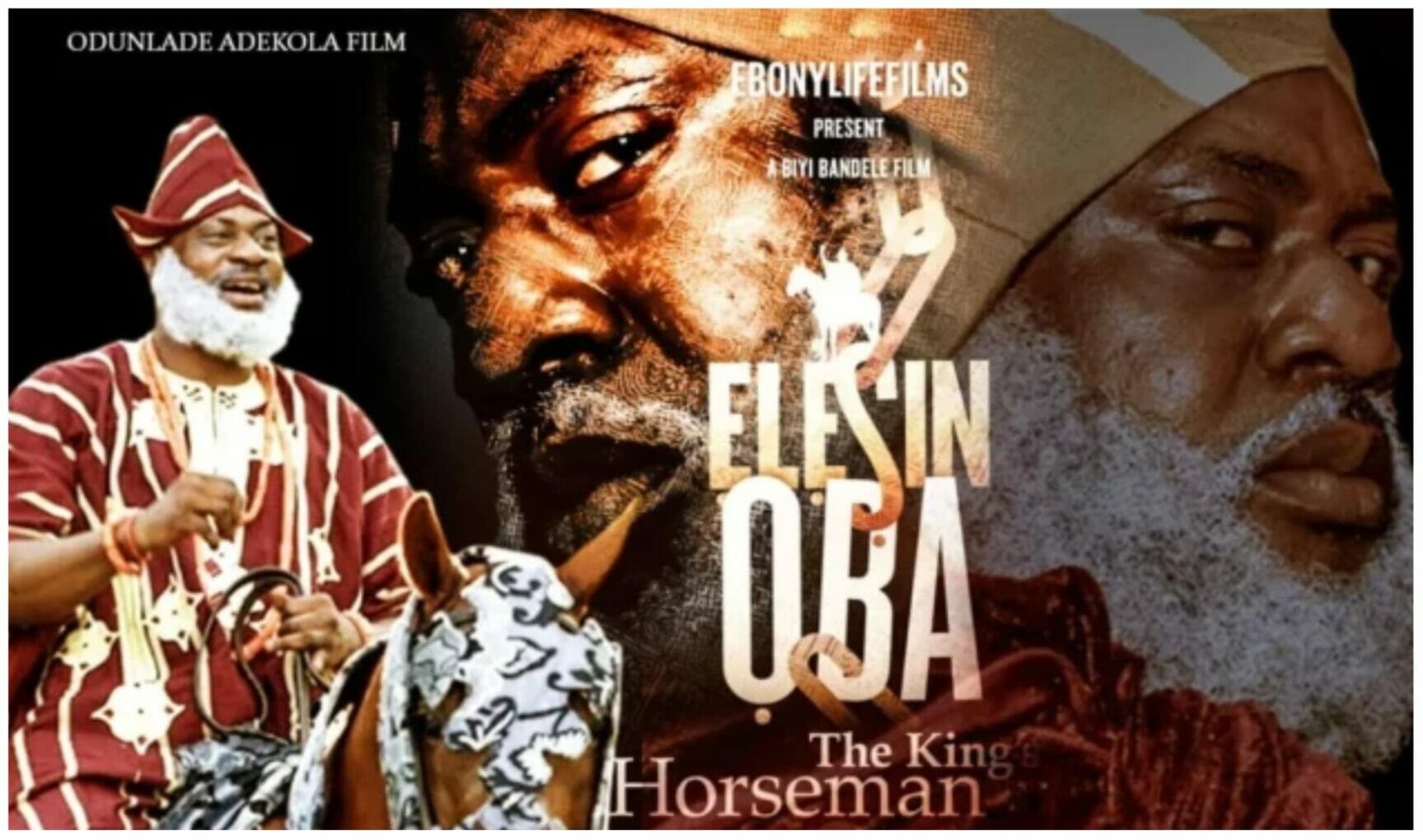Movie review: Why Elesin Oba should have been left as a stage play

We have just watched the highly anticipated Elesin Oba movie that dropped on Netflix hours ago and alas, it left us heartbroken for being boring!
Elesin Oba bored us so much that we almost slept off in between. All the excitement and joy with which we started viewing was put to mud as the one hour 36 minutes drama played on.
The newly released Ebony Life’s production Elesin Oba which translates to the King’s Horseman is a film adaptation of Wole Soyinka’s play, Death and the Horseman.
Directed by the late Biyi Bandele, the historical drama based on actual events tells the story of Elesin, the king’s horseman. He is set to perform a ritual suicide to accompany the king on his journey to the afterlife. However, he cannot complete his duty due to unavoidable circumstances, leading to several unfortunate events. It explores the cultural clash between English and Nigerians when it comes to respecting a ritual.
Well, of course, Ebonylife production continues to set good standards in terms of cinematography, and production, but we think this piece should be left on stage. Pure theater! The performances felt like they’ll be better appreciated on stage. It lacked layers, dialogues, twists, expansion, spice and fire.

Also, it felt like the characters weren’t fit or well-groomed for the roles assigned to them.
Asides from Shaffy Bello who delivered the Iya Oloja excellently well; her facial expressions while delivering lines made the scene more believable, the other characters, however, struggled with theirs.
We didn’t enjoy Odunlade Adekola playing the horseman even veteran actor Jide Kosoko barely managed to deliver on the police officer role. Deyemi Okanlawon and Omowunmi could have done more with their roles. Let’s not even talk about the guest appearances from Joke Silva and Taiwo Ajayi Lycett, argh!
One of the loopholes in the movie is how the whites conversed with the locals without an interpreter. It was so evident in the scene when Pilkings and Elesin spoke to each other in their own languages and yet they perfectly understood each other. How is that even possible? Even the Iyaloja conversed with the white man in Yoruba and they understood each other?
From us at Kemi Filani, it is a 4/10.







Folajimi
November 8, 2022 at 2:27 pm
I love Your Review Ma’am
For The Jail Scene Between Pilking And Elesin I Also Wanted To Criticize That Part But I Thought Of It That Pilking Have Been Staying In That Village For So Long To
The Extent Of Sending Elesin’s Son Abroad To Study Which Means At Least If He Can’t Speak Yoruba He Should Be Able To Understand….
And For Elesin He Should Also Be Able To Understand English Even If He Can’t Speak… Because He Was The High Chief Of The Dead King And He Would Have Related With Several Whites (business negotiation, meeting Pilking e.t.c)
Same As Iya Oloja
She’s Also One Of The King’s Officials I Guess Should Be Able To Understand The White Man Language.
It’s Just Like Bringing It To The Real Life Situation, Let’s Say For Instance An Uneducated Naija Man Traveled To London And Stayed There For 4yrs And Above What Do You Expect, If He Can’t Speak Their Language He Should Be Able To Understand.